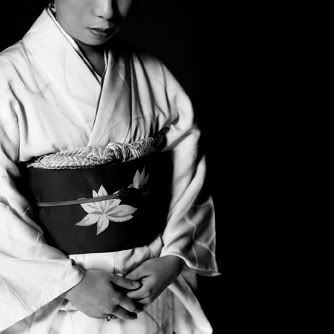[Lit. "crimson mouth", or lipstick.]
Lip Service: Photog Sues Hip L.A. Restaurant for Copyright Infringement
Usually when a photographer sues someone over copyright infringement, you end up reading about it in photo industry trade newspapers and Websites. But when National Geographic staffer Jodi Cobb sued the Geisha House restaurant in Los Angeles for using her photographs without permission, word of the legal action appeared on the Website of The Hollywood Reporter, a mainstay of the entertainment industry.
That might be because the restaurant is one of the town’s hottest nightspots. Or because one of its owners was the winner of the CBS reality TV show Big Brother. Or maybe it was because one of the investors in the restaurant is actor Ashton Kutcher.
Whatever the reason, the case should also be of interest to photographers around the country, simply because it illustrates how cavalierly the notion of copyright is treated by many people today.
Continue reading "Lip Service: Photog Sues Hip L.A. Restaurant for Copyright Infringement" from PopPhoto.com
Article from Hollywood reporter esq
Article from the Defamer
Article from reality blurred
I'm a bit disturbed by the idea that red lips on a white background could be "owned" exclusively by Jodi Cobb. The lips on the restaurant are slightly different, but Cobb calls it "virtually identical". Her proof? She had it analyzed by a National Geographic expert - the same organization she once worked for. How different are red lips on white painted skin supposed to look?
Clearly the book cover and the photo on the door are NOT the same. They are similar, but as mentioned way down in the article, the restaurant intentionally copied the theme and reproduced a similar photo (variations on a theme). The cover of A Year in Search of Wa features red lips on white skin, but with the kimono collars showing.
I can see why Cobb would be pissed (I might be a little mad too). But the restaurant didn't quite steal her photo - they recreated a similar photo. Is recreating a similar photo the same as copyright violation? That's a question of access. Well, I'm not an attorney, but it seems like the case could go either way. I mean, is an idea copyright-able? Cobb is also suing about the t-shirt the guy wore on Big Brother too. The use of her images inside the building is one matter (apparently the original cease and desist complaint is dated from 2005). The restaurant interior from the website doesn't appear to have anything immediately Cobb-esque - unless it's in the ladies room or something - so it seems as though they've complied on that front. But Cobb is asking for $150,000 per image plus damages. I'm tempted to get a copy of the filing.
Now Geiko usually seem flattered by the various artworks that people make of them. I find it odd that Cobb, who was granted a boon by the Miyagawacho geiko, couldn't work something out with a Hollywood restaurant. If I were the restaurant manager, I probably would have done the same. You could either go for the world-class photog for way too much, or go with the unknown photog for a hundred bucks. I've known lots of struggling artists who are thrilled to exhibit their works at cafes and restaurants just for the exposure. And it's pretty clear that geisha haven't officially trademarked their red lips/white skin combo (otherwise the maiko henshin studios would be in serious trouble).
Though I can't see anything immediately from the Geisha House site that obviously resembles Cobb's photos (Aside from the red lips-white face composition - Official Gallery) - maybe a visit is in order.
I'll admit that I'm approaching this situation with a photographer's mindset. I often see really well-crafted images and think "Oh, I could totally do that." I usually end up with something completely different, but sometimes it's the same.
I know Peter MacIntosh once called Cobb's book "a typical 'take what you can get from Japan and run without thinking about all the bridges you burned.'" My biggest fear is that buying these Paparazzi-esque photobooks (including Cobb) I'll only encourage more photographers to book a month-long trip to Japan with the hopes of getting published just by standing along Kyoto curbsides at dusk. It feels too much like encouraging the geisha mystique rather than the geisha livelihood. One of the biggest tests for an ethnographer (or photo journalist in this case) is if he/she can return to the community and find their relationships intact. Dalby still maintains her relationship with her geisha mother, even bringing her husband and kids to visit her old Pontocho haunts. Cobb would probably not be as welcome in Miyagawa-cho.
Some of these recently published maiko/geiko photobooks, particularly Western photographers, are no more than pictures of geisha on the street (which is pretty much legal everywhere, but also ethically questionable). Are these photos released with the approval of the geisha? Does the photog have permission? Does the maiko who pauses politely to pose give consent to have her image published for profit? Cobb says she was granted permission to shoot, otherwise she never would have gotten past the door, but were her photos published with the geisha's concent? Cobb shot back when film cameras were used, so did she ask for permission before or after the images were proccessed? Were any of these factors taken into consideration? It's... a grey area.

No comments:
Post a Comment